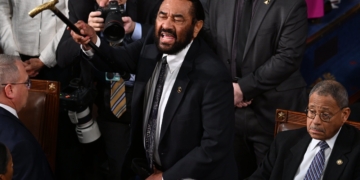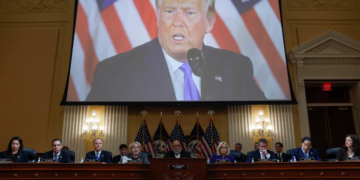President Donald Trump announced a new initiative aimed at lowering prescription drug costs for American consumers. The plan involves a partnership with Pfizer to offer discounted medications directly through a government-operated website called TrumpRx.gov. According to the administration, similar agreements with other pharmaceutical companies are in development.
The initiative is part of a broader effort to align U.S. drug prices with those in other developed countries using a concept known as most-favored-nation pricing. Under the agreement, Pfizer has committed to charge the same prices for new drugs in the U.S. as it does abroad. While the deal promises direct-to-consumer savings, experts question whether it will significantly benefit Americans or Medicaid recipients. This article explores the details of the TrumpRx program, its potential impact, and the controversies surrounding the initiative.
TrumpRx.gov and the Pfizer Agreement
Direct-to-Consumer Discount Platform
The TrumpRx.gov website, expected to launch in 2026, will direct consumers to pharmaceutical companies’ own websites to place orders. Pfizer has agreed to offer drugs at prices 50% lower on average for patients purchasing without insurance. However, exact details of the pricing calculations remain confidential, leaving questions about affordability and eligibility.
Target Audience
The discounts primarily target patients not using health insurance. Many Americans with insurance may not benefit from lower prices through TrumpRx.gov, as pharmacy counter prices could already be more favorable. Experts note that Medicaid beneficiaries, who already pay relatively low prices, may see little additional benefit.
Goals of the Initiative
Aligning U.S. Drug Prices Globally
President Trump criticized Americans for subsidizing global pharmaceutical research and development. By negotiating direct deals with drugmakers, he aims to make prices fairer internationally while reducing the burden on U.S. consumers.
Pfizer’s Commitments
Pfizer CEO Albert Bourla pledged to:
Launch new drugs at the same price in the U.S. as in other developed countries
Offer drugs to Medicaid under most-favored-nation pricing
Invest $70 billion in reshoring domestic manufacturing of pharmaceuticals
These steps, praised by administration officials, are positioned as a model for corporate responsibility and public health.
Controversies and Criticism
Limited Impact on Consumers
Experts, including Harvard Medical School’s Ameet Sarpatwari, argue that the initiative may not meaningfully lower costs for most Americans. Many insured consumers already pay less at pharmacies, and Medicaid beneficiaries may see minimal savings. Some critics describe the TrumpRx deal as more symbolic than transformative.
Enforcement and Compliance
The administration previously issued letters to 17 drugmakers, demanding lower Medicaid prices, direct-to-consumer sales, and global price parity. Pharmaceutical companies had 60 days to comply voluntarily, or risk tariffs and other government actions. Pfizer received a three-year grace period from potential tariffs as part of the deal.
Broader Policy Context
Executive Orders and Global Pricing
The Trump administration has emphasized global fairness in drug pricing. Trump’s executive order in May targeted high U.S. prices relative to other countries, aiming to reverse what he described as an “unfair situation” where American consumers subsidize global R&D.
Manufacturing and National Security
The Pfizer agreement includes significant domestic investment, reshoring production to the U.S., which the administration framed as a national security measure. Trump highlighted tariffs as a powerful tool to influence corporate behavior.
FAQ: Common Questions About TrumpRx and the Pfizer Deal
1. What is TrumpRx.gov?
A government-operated website that will direct consumers to pharmaceutical companies’ direct-to-consumer platforms for discounted drug purchases.
2. Who benefits from the discounted prices?
Patients purchasing drugs without insurance will see the most benefit, with average prices reduced by roughly 50%.
3. Will Medicaid beneficiaries benefit?
Potentially, though many Medicaid recipients already pay low drug prices, so savings may be limited.
4. When will TrumpRx.gov launch?
The website is expected to go live in 2026.
5. Does the deal include other pharmaceutical companies?
Yes, the administration plans similar agreements with other drugmakers, though Pfizer is the first to finalize a deal.
Conclusion
The TrumpRx initiative and Pfizer agreement represent a high-profile effort to address U.S. prescription drug costs through direct-to-consumer sales and global price alignment. While the program promises significant discounts for some patients, experts remain skeptical about its overall impact on the average American. The deal also highlights the administration’s broader goals of reshoring manufacturing, enforcing most-favored-nation pricing, and leveraging executive authority to influence corporate behavior.













